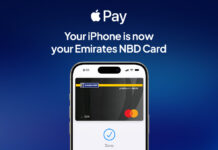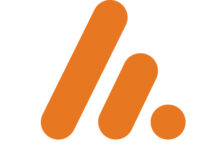Al Etihad Credit Bureau (AECB) announced the launch of ChequeScore, an innovative mobile application that allows both businesses and individuals to instantly know how likely a cheque issued through a UAE-based bank is to bounce.
“ChequeScore will help reduce the number of bounced cheques in the UAE”, said Marwan Ahmed Lutfi, Chief Executive Officer of AECB. “Last year, bouncing a cheque was a criminal offense; however, with the new law decriminalizing this in the beginning of this year, it has become imperative that UAE businesses and individuals assess the risks associated with cheques they have on hand. ChequeScore addresses this uncertainty, and not only is the application intuitive, but fast as well, as it will indicate the probability of a cheque to bounce in mere moments.”
Once a user downloads the ChequeScore app to their mobile device and registers, they can scan a cheque, upload a cheque image, or enter the cheque data manually. By completing the purchasing process, the user will immediately be shown the Cheque Score – a score ranging from 1 to 99% indicating the probability of a cheque to bounce in the next nine months. The score is also colour-coded, with the low probability to bounce coloured in green, medium probability to bounce in amber, and high probability to bounce represented in red. The Cheque Score is calculated using the issuer’s Credit Score, another product provided by AECB, with cheque issuance and clearance history, on-time payment patterns, and other factors considered that support the predictive nature of this score.
As per the UAE Central Bank’s Image Cheque Clearing System (ICCS), there were 21 million cheques issued in the UAE in 2021, with an average value of AED 51,000 per cheque, with a total value of AED 41.6 billion not fulfilled as a result of cheques bouncing from individuals and companies. ChequeScore, in effect, will serve to lower the number of bounced cheques, and provides a push for financial responsibility as that previous element of criminalization has been removed. “Once the score is known, the onus is on the receiver’s appetite for risk to accept the cheque,” explained Lutfi. “Concurrently, the one providing the cheque should ensure that they have maintained a positive payment behaviour history as not doing so would now be showing instantaneously.”
While ChequeScore is being made available to the public now, the application went through months of rigorous trial testing before launch to ensure a smooth and hassle-free customer experience. During the trial period, more than 11,000 cheques a total value of AED 788 million were scanned through the application.
“The trial period was valuable for us, as users provided much-needed feedback that was taken into consideration before releasing the final version,” explained Lutfi. “It also provided an idea of how receptive businesses were of this product – more than 6,000 users signed up during the trial period which is a very positive indication. In the same period, we have seen cheques as little as AED 500 and as large as AED 100 million successfully scored through ChequeScore.”
ChequeScore is available for both iOS and Android devices and can be downloaded from their respective app stores. For more information, please visit www.aecb.ae











